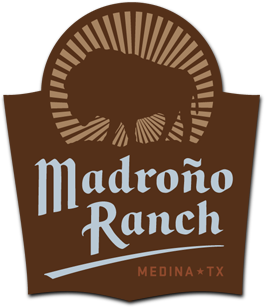The first sparks for the idea of Madroño Ranch: A Center for Writing and the Environment were kindled about a year ago in conversations with my mother, Jessica Hobby Catto. She has listened carefully and thoughtfully to my sometimes wildly utopian ideas, offering hard-earned practical advice and persistent encouragement.
Her death on September 30 has left me so stunned that I’m having trouble relegating her to the past tense. I am struggling to stay in the present perfect, which refuses to point to a specific time, preferring instead to drift between the present and the past. This grammatical eddy allows me to dawdle a little longer before I face a present and future without her. At the same time, I know that at Madroño her spirit is always present, always past, always future.
My mother’s love for the outdoors shaped my life. The first house I remember was on a bluff north of the San Antonio airport, terrain that didn’t qualify as even remotely suburban at the time. Since my three siblings and I arrived within six years of each other, my mother must have deemed it a survival strategy to push us out of doors as much as possible. We had no immediate neighbors and spent our time pretending to be lost in the woods, investigating the draws and seasonal creeks that occasionally flooded and kept us home from school, and sliding down the cliff (strictly forbidden) to visit the nearest neighbors who rewarded us with butterscotch candies. The gravel road on which we lived was rural enough that people felt comfortable dumping trash on it. Every few months my mother would send us to drag a large trash can and pick up the trash on the road that we could pick up: we were permitted to leave the large appliances and dead livestock. Her point was—and is—clear: some human interactions with the landscape are unacceptable.
She also taught me that love of place is a perfectly reasonable principle by which to order a life. Converted to the Church of High Altitudes at Cimarroncita Ranch Camp in New Mexico, she began proselytizing to her children in the mid-1960s when we began annual summer treks to Aspen, Colorado. In the requisite station wagon filled with pillows, the reek of Panhandle oil and cattle, and squabbling children, we always stopped at the top of then-unpaved Independence Pass (12,000-plus feet above sea level) to play in the snow.
Aspen then had one paved street, one stop sign, a drug store with a soda fountain, and two fine old movie theaters. What more did we need? On days we didn’t hike, my mother shooed us outside to play in the puddles if it was raining or to climb up nearby Aspen Mountain with raincoats or pieces of cardboard upon which we would slide back down the meadow grasses. When my father’s career took us away from Texas and to other interesting venues, Colorado was the place we always returned to, my mother’s spiritual center. Despite her peripatetic life, she had a profound love of the Roaring Fork River valley, its smells and flowers, its imperious weather changes, the varieties of its wildness. These never ceased to sustain her, and she in turn worked to sustain them through her involvement with various environmental causes, particularly land conservation.
When she was diagnosed with metastatic colon cancer in 2007, my parents began spending more time at their San Antonio home to be near the doctors she most trusted. Since she had long since given her heart and energy to Colorado, I was worried that she would feel unmoored during her time in San Antonio, adding to the discomforts of treatment. As we talked about ways in which she could stay connected to the conservation world she loved, especially in a state like Texas that so dearly values its private property rights, the idea of creating a gathering place for people passionate about nurturing the natural world was born.
I know I will eventually move out of the strange timelessness that hovers around times of death, but never completely. Despite her preference for the mountains, she saw the beauties of the Texas Hill Country and bought the original piece of what has become Madroño Ranch more than fifteen years ago. The blessings she bestowed on me—awareness of human limits, love of place, the place itself—are with me as long as I am here to receive them.
What we’re reading
Heather: Nicholson Baker, The Anthologist
Martin: Charles Dickens, Great Expectations


beautiful, heather. your mother was an amazing and inspirational woman. my heart goes out to you and your family.
Dear Heather – what an amazing woman! No surprise really, just look at her daughter. You are in my prayers, sweet friend. Much love, Louisa
- did it really take 28 steps to go around the Plymouth Sport Suburban?
Heather, Although I am in front of my computer, where I ought not to be on a day as exquisite as this, I am really not … your gentle story has transplanted me to other places from your memories, as well as my own. (We traveled with pillows in that same Plymouth station wagon … I wonder if we passed you on the road!) I would have loved to have known your mother, and grateful that I am lucky enough to know you. Love to all of the Kohouts. Cathy
the picture of you and your mom is luminous and your words evoke something so very fine, heather. wow. stephen
Pingback: A father’s legacy | Madroño Ranch